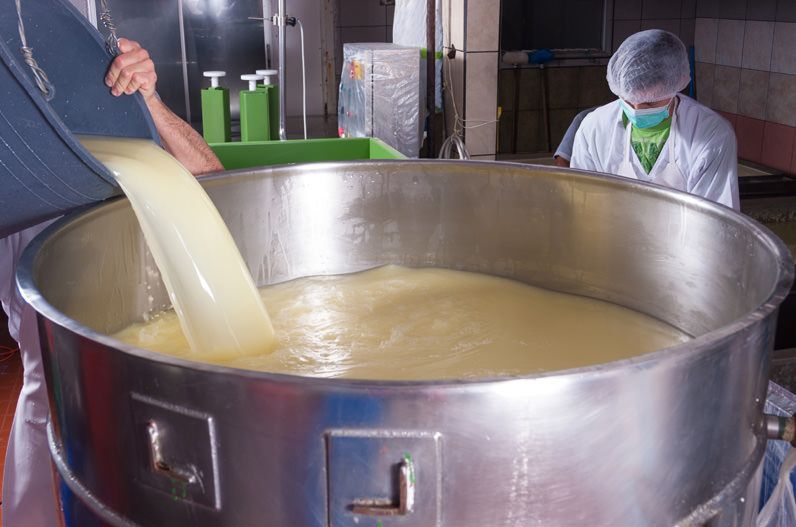Innovative Technologies for a Sustainable Dairy Industry
Published on by Water Network Research, Official research team of The Water Network in Case Studies
The dairy industry comprises around 13 % of Europe’s total food and drink sector and is one of largest consumers of energy and water. An EU-funded initiative has therefore explored the economic and environmental benefits of implementing innovative technologies and water management systems.

Whey is a side product is a side product from cheese production.
EnReMilk will implement novel techniques for its valorization.
Source: ENREMILK
The ENREMILK project investigated how to reduce water and energy consumption across the entire dairy industry supply chain. Consortium members achieved significant and quantifiable savings at the pilot and industrial demonstration scale via two case studies. These were based on dried skimmed milk powder and mozzarella processing lines linked to innovative in-situ by-product recovery and wastewater treatment and recycling systems.
Researchers employed a combination of model simulations and physical trials to validate a savings of 30 % for water and 20 % for energy compared to the consumption baseline of existing dairy operations. “We optimised innovative technologies implemented in key dairy units to provide significant savings, while ensuring food quality and safety,” says project coordinator Dr Ana Lucia Vasquez-Caicedo.
The initiative included decision-making tools for further developing and implementing technologies and tested their technical and economic viability. “The innovative aspect of this project is based on evaluating the introduction of new technologies in an existing system according to economic, environmental and social impacts, which are interlinked and assessed throughout the whole process,” Dr Vasquez-Caicedo explains.
New technologies applied
Researchers used a ‘technology toolbox’ involving pressure change technology for pasteurisation, extruder technology for mozzarella texturisation, microwave technology for pre-heating concentrates, and superheated steam and closed loop technologies for spray drying of skimmed milk powder. Production of acidic quark powder from curdled soured milk using microwave technology for pre-heating prior to spray drying resulted in significant water and energy savings. Nevertheless, “ENREMILK showed that in most cases a mixed model can achieve the desired savings, and that the key is to evaluate scenarios combining different technologies,” claims Dr Vasquez-Caicedo.
Life cycle analysis, which assesses the environmental impacts of the entire production process revealed the importance of visualising and quantifying the impact of the introduction of new technologies in a dairy processing plant. According to Dr Vasquez-Caicedo: “They help to determine the extent to which energy use affects related impacts like acidification, eutrophication and particulate matter formation, and identify trade-offs between environmental impact categories.”
Faster, better, and cheaper
“What makes ENREMILK unique is the measurable reduction of water and energy consumption through the integration of novel technologies,” claims Dr Vasquez-Caicedo. Other benefits to the dairy industry include time reduction, better quality products, and product variability. “The project presents the total integration not only of innovative technologies, but also the acceptance of the consumer, market, society and environment, through an integral socio-economic, financial and environmental evaluation,” Dr Vasquez-Caicedo concludes.
ENREMILK supports SMEs and the dairy industry through reductions in energy and water consumption and the integration of novel technology for improvement in production processes and greater sustainability. This will help to make Europe’s dairy industry more competitive in the global market place, whilst supporting local communities with more jobs and the attainment of new skills.
Source: CORDIS EU
Find out more: ENREMILK
Media
Taxonomy
- Reclaimed Wastewater
- Industrial Wastewater Treatment
- Industrial Water Treatment
- Industrial
- Wastewater Treatment
- Industrial Water Treatment
- Industrial Water Reuse
- Industrial Water Managment
- Dairy Cattle Farming
- Dairy Development
- Dairy Products
- Milk
- Dairy